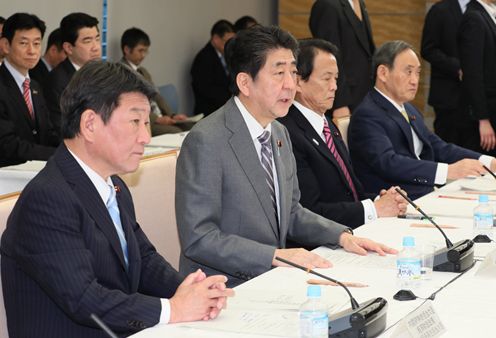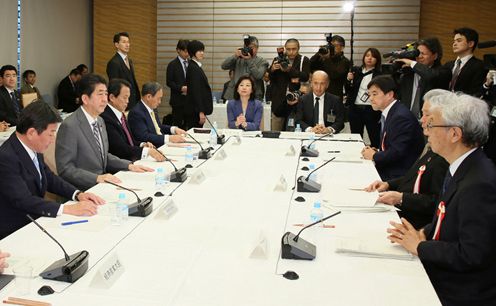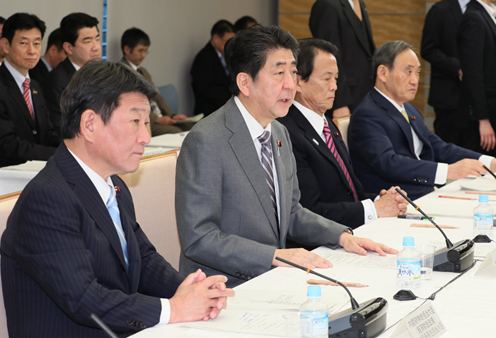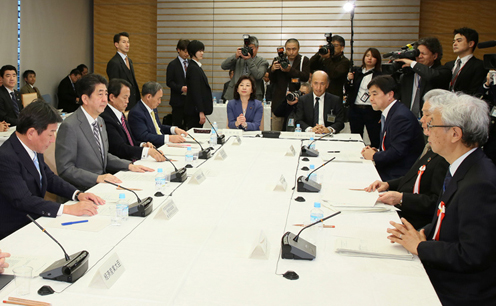Home > News > The Prime Minister in Action > January 2018 > Meeting of the Council on Economic and Fiscal Policy
The Prime Minister in Action
Meeting of the Council on Economic and Fiscal Policy
January 23, 2018

Photograph of the Prime Minister making a statement (1)

Photograph of the Prime Minister making a statement (2)
[Provisional Translation]
On January 23, 2018, Prime Minister Shinzo Abe held the 1st meeting in 2018 of the Council on Economic and Fiscal Policy at the Prime Minister’s Office.
At the meeting, discussions were held on the medium- to long-term economic and fiscal outlook, and this year’s topics of discussions in the Council on Economic and Fiscal Policy.
Based on the discussion, the Prime Minister said,
“Firstly, we discussed the medium- to long-term economic and fiscal outlook.
The medium- to long-term estimates presented today were created based on the discussions within the Council on Economic and Fiscal Policy that we need a realistic estimate, which takes into account past performance and recent economic conditions. In a scenario where medium- to long-term economic growth is projected to exceed 2% in real terms and exceed 3% in nominal terms, the estimates forecast that a primary balance surplus will be achieved in the second half of the 2020s. However, these estimates do not reflect our efforts to advance expenditure reform.
Based on these medium- to long-term estimates, we must determine, by this summer, when we will achieve a primary balance surplus, and decide on a concrete plan for doing so.
I would like the Council members from the private sector, as well as the relevant ministers, including Minister Motegi and Minister Aso, to thoroughly discuss these matters.
Secondly, we discussed this year’s topics of discussions of the Council on Economic and Fiscal Policy.
Council members from the private sector have raised the following issues, all of which are of great importance: an exit from deflation and growth in disposable income to support that, especially the realization of a 3% wage increase; a review of the effectiveness of the expenditure and revenue reforms toward achieving fiscal soundness, and the formulation of plans to achieve a surplus in the primary balance; the materialization of Society 5.0, in response to accelerating global changes; as well as the realization of a social security system oriented to all generations and the establishment of new frameworks toward regional revitalization.
I hope that we can deepen discussions toward the formulation of the Basic Policies scheduled for this summer.”


